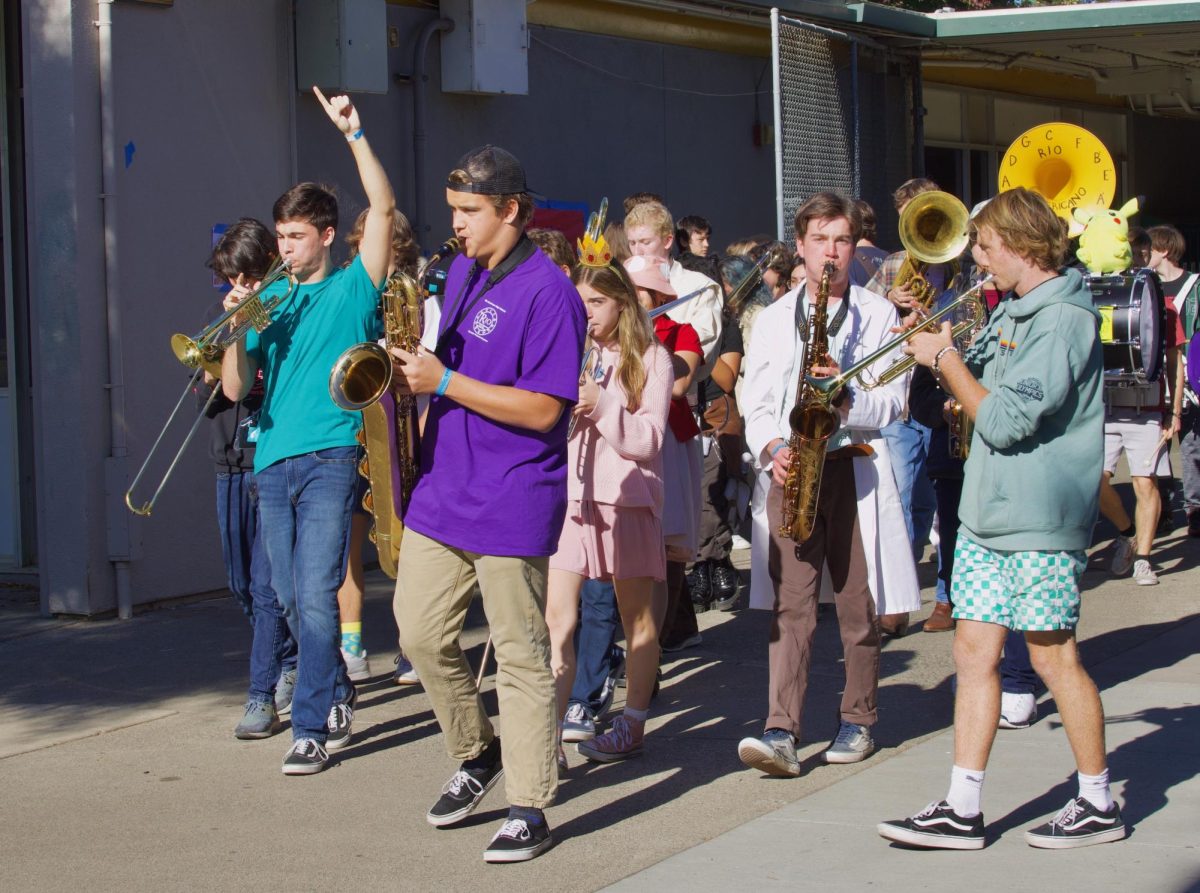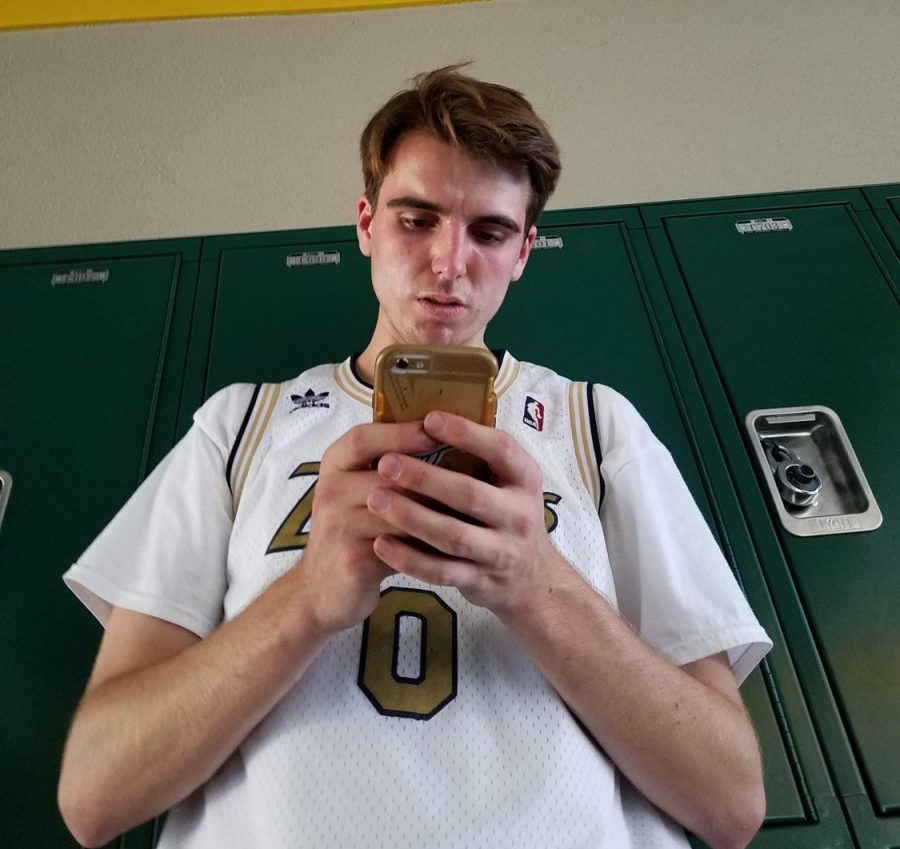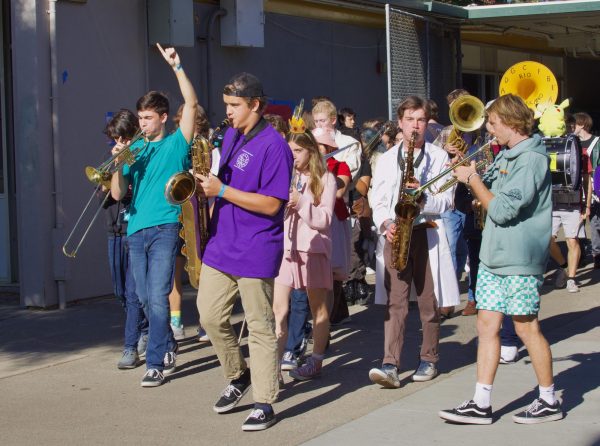Teens Rely More on Use of Social Media, And It’s Raising Anxiety
Photo By Nick Alvarez
Senior Cade Johnson checking his social media networks during passing period in the hallway.
In second period, freshman Hailie Mcardle rushes to her seat before the bell rings. She checks her phone one last time before the teacher comes in to see if she has any new snaps or texts since she last checked five minutes ago.
“I’ll just glance down all the time during class and I’ll see I got a Snapchat from this person, and then I’ll check it and then respond,” said Mcardle.
While teachers may be frustrated by Mcardle’s attachment to her phone, she is not unusual. Teen lives are ruled by social media outlets like Instagram, Snapchat, Facebook or Twitter.
For better or for worse, social media is practically inescapable. Teens are always on their phones, checking how many likes, followers or retweets they have.
“I’m always worrying I get my likes quickly enough, and like other people have like 1,500 followers, and I just worry that I don’t have enough,” said Mcardle.
The average American teenager spends five hours on their phones each day, according to the Pew Research Center. And the time spent on social media has been increasing steadily for years.
With all of these different opportunities and outlets to socialize online, teens nowadays are becoming more and more socially inept in person. According to Pew, teens now a days feel like interactions in person aren’t needed, why waste the energy to talk to someone face to face when you can just text them?
However, social media also allows people to connect with more people daily. It is a give and take between society’s loss in personal contact, and a spike in our total social interactions.
“There’s no question kids are missing out on very critical social skills. In a way, texting and online communicating—it’s not like it creates a nonverbal learning disability, but it puts everybody in a nonverbal, disabled context.” said Dr. Catherine Steiner-Adair.
While it seems impossible to imagine a life without being connected to people through our phones, research shows that only about 60 percent of Americans have a social networking account. Why are so many people abstaining from this international trend?
This raises the question; are people with social media happier than those without? According to a study conducted by the Huffington Post, people without social media are 28 percent more likely to say that their life is stress free.
The stress associated with social media is a byproduct of an overload of information about other people’s lives, and the resulting jealousy. However, those who chose to stay away from online social networking run the risk of being left out and losing friendships or connections.
“When I post something I’ll keep reloading the screen until I get a comment, and I make sure it’s good. There’s a setting where you can block out negative comments so I block on my mean comments. There’s a lot of negative people out there.” Mcardle said.
Cyberbullying is a big problem for students, and social media gives bullies a way to harass others without a fear of consequence. People can spread rumors or leak embarrassing photos online quickly and anonymously.
According to nobullying.com, over 50 percent of teens have experienced some form of cyberbullying in their life, and 25 percent are regularly tormented through online outlets.
As social media has become much more common for teens, and as use of cell phones have become necessary, suicide rates have increased as well. Suicide is now the second leading cause of death for teens.
Since 2007, the suicide rate for teen boys has increased by 30 percent, whereas for teen girls, the suicide rate has doubled. The number of adolescent girls who committed suicide was the highest it’s been for 40 years.
“I think social media is a way for people to express themselves and be who they are. Besides the fact that there are cyberbullies online, there are so many other things that make social media great. I think everyone should have a social media account.” said Mcardle, concluding her own views on social media, despite the many factors that endanger the mental well-being of teens.































Abby A • Oct 13, 2020 at 7:58 PM
Social media can also heavily affect bullying. Social media does not go away or turn off, it runs constantly. It can also be anonymous which makes people ruthless. It is so easy to spread positivity, but it is just as easy to spread negativity. The anonymity that social media provides gives people the courage to comment negatively on their posts. Overall social media has positives and negatives.